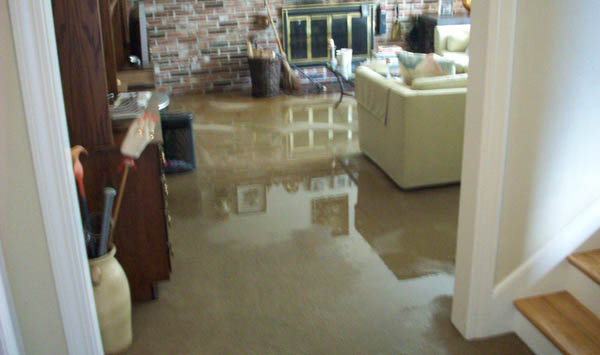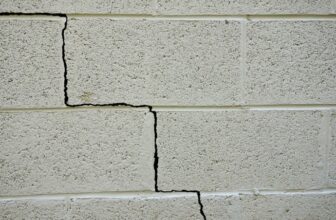
Even small-scale basement floods can be catastrophic and result in thousands of dollars in damage to your home. The water will often cause extensive structural damage to the walls, floors, and foundation of the room, and it can also ruin any electronics, furniture, clothing, and other items that were in the flooded area.
What Causes Basements to Flood?
To avoid a future flood, you’ll need to know why they occur in the first place. Basement floods occur for a number of reasons, including:
- Overflowing bodies of water. Excessive rainfall causes a river or lake to overflow, and the water proceeds to flow into your basement.
- Improperly installed rain gutters and downspouts. Downspouts that aren’t angled out and away from your house will allow water to pool around the foundation and cause it to weaken, eventually allowing water inside.
- Tiny cracks in your walls and foundation. Even the smallest of unrepaired cracks can allow water in during the next rainstorm.
- Plumbing problems. Backed-up plumbing, burst pipes, and leaking pipes can allow water to enter your basement.
It’s not always possible to keep your basement from flooding. However, there are steps you can take to minimize your risk of experiencing a catastrophic flood.
Check your Rain Gutters
Make sure that rain gutters and downspouts are properly installed and that the downspout is pointed out and away from the house. Also be sure to regularly clear the gutters of any leaves and other debris.
Waterproof your Basement
Get your basement waterproofed. Waterproofing involves detecting and sealing off cracks in your walls and foundation as well as making sure that sump pumps, French drains, and other water control equipment is properly installed and functioning.
Waterproofing won’t completely protect you from flooding—there’ll always be the risk of internal problems like a pipe burst or something catastrophic like a major river flood—but it will help prevent a lot of kinds of basement flooding.
Evaluate your Lot Grading
If the land around your home slopes toward your home, your risk of a flood increases drastically. As water drains toward your home, your sump pump and weeping tiles can quickly become overloaded and result in a flooded basement. The problem can be solved by hiring a professional contractor to fill in the land around your home to ensure that your yard slopes away from your property.
Inspect your Plumbing
Prevent a burst pipe, leaking pipe, or other problem by inspecting your pipes for any sign of stress or cracking. Replace old or worn out valves and joints. If you suspect a major problem, call in a licensed plumber to go over the entire piping system and to repair any weaknesses.
Keeping the Water Out
When your basement does flood, local Flooded Basement Experts will be able to restore your property. However, the best (and cheapest) thing is to stop the flooding before it starts. Fortunately, homeowners can ensure that their risk of future flood damage is kept at the bare minimum.
There is no fail-proof method of keeping the water out of your home. The waterproofing methods outlined here may seem like a lot of work, but these simple maintenance tasks can save you the much greater stress of a basement flood.
By Tim Crain. Tim writes professionally about a variety of home improvement topics.





